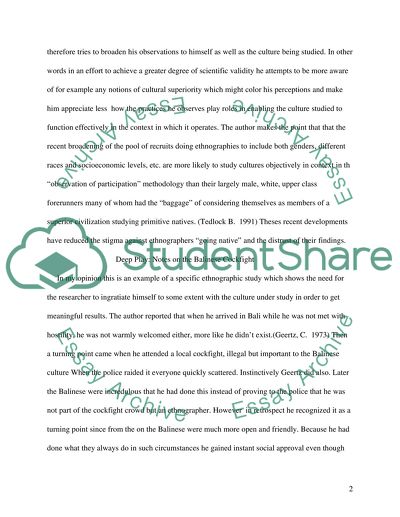Ethnography and the interpretation of cultures Essay. Retrieved from https://studentshare.org/miscellaneous/1667945-ethnography-and-the-interpretation-of-cultures
Ethnography and the Interpretation of Cultures Essay. https://studentshare.org/miscellaneous/1667945-ethnography-and-the-interpretation-of-cultures.


